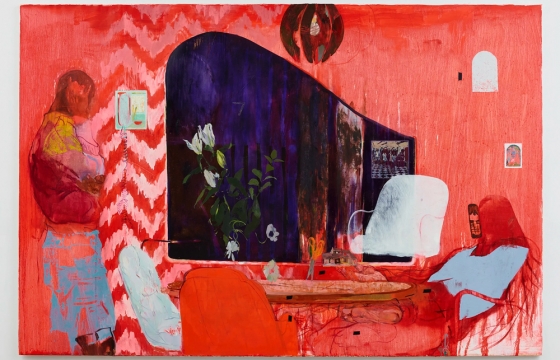
"April Freely passed four years ago. I have since tried to map the tremendous, transformative quality of this profound loss and to desperately rebuild my practice-the force and future of which was and remains inextricably indebted to her love, her life, and her work. This show is not an attempt to render this literally. I do not believe the work can properly contain this."
""One of the values that I think poetry practices with language is that precision matters," says Elizabeth Alexander. "As human beings, if we have not been seen straight-on or named precisely, we feel ill at ease." I think, in this regard, of what the stakes of poetic language might teach me about intensity of address in speech, object, and image."
"Much of April's writing and poetry addressed the lives of black American women as caretakers and recipients of emotional and physical attention. Black matriarchs are at once integral to and simultaneously rendered invisible within American society, history, and family dynamics. Mothering here is not meant as an abstraction. "I have a mother's range of the absolute," April writes. "Let a mother be the opposite of doubt.""
April Freely passed four years ago. Efforts were made to map the transformative quality of that loss and to rebuild a practice indebted to her love, life, and work. The exhibition refuses literal containment of that mourning, asserting that the work cannot properly contain such loss. Elizabeth Alexander's reflection on poetry emphasizes that precision in language helps people feel seen and named. Questions arise about how generous observation, linguistic precision, representational urgency, and space for error produce witness and recognition that transform quality and clarity of life. April's writing focused on Black American women as caretakers whose labor is integral yet rendered invisible. The exhibition aims to build against forgetting and toward a common body of remembrance.
Read at Juxtapoz
Unable to calculate read time
Collection
[
|
...
]